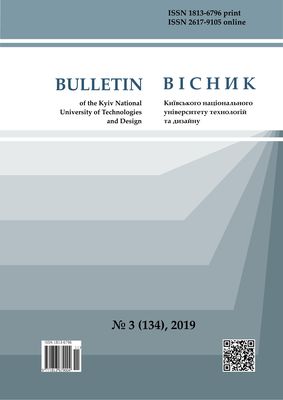INHIBITION THE RAT CYTOPLASMATIC ALCOHOL DEHYDROGENASE BY SUBSTITUTED BENZOIC ACID AMIDES OF RATS’ LIVER
DOI:
https://doi.org/10.30857/1813-6796.2019.3.9Keywords:
amides of substituted benzoic acids, antidote, alcohol dehydrogenase, inhibitor, enzyme activityAbstract
The main purpose of this work was to investigate the influence of substituted benzoic acid amides on the activity of NAD+ dependent alcohol dehydrogenase in vitro, to study the kinetic nature of the effective inhibitors interaction with the enzyme, to establish the relationship between the chemical structure of compounds and their influence on the rate of the enzymatic reaction. The studies were carried out using rat liver cytoplasmic alcohol dehydrogenase, which was obtained by differential centrifugation. The enzyme activity was determined by spectrophotometric method. To study the kinetic nature of the enzyme interaction with inhibitors, solutions ofsubstituted benzoic acid amides at concentrations of 12.5-100 μM were used. The obtained data were presented in double reciprocal coordinates using the Lineweaver-Burk and Yoshino-Murakami methods. Findings. An effective reversible inhibitor of cytoplasmic ADH was revealed among the studied
substituted benzoic acid amides. 2.4-dichloro-5-methylbenzamide inhibited the enzyme activity up to 60%. It exhibited a mixed character of inhibition in relation to ethanol at saturating concentrations of NAD+. An in-depth study of this process showed that the amide inhibited the enzyme activity in a non-competitive type at low ethanol concentrations (up to 2 mM) with an inhibition constant of 35 μM. When the alcohol concentration was increased, the character of inhibition became uncompetitive. Originality. The kinetic type of the interaction between the NAD+ - dependent alcohol dehydrogenase and the new inhibitor of its activity was investigated. Practical value. The new ADH inhibitor has been identified. It can be used as a potential antidote for poisoning with toxic alcohols and their biotransformation products.
Downloads
Download data is not yet available.
Downloads
Published
2019-11-12
Issue
Section
Chemical, Biological & Pharmaceutical Technologies

